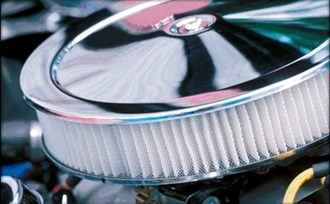
Top stories






More news

Marketing & Media
Warner Bros. was “nice to have” but not at any price, says Netflix

Logistics & Transport
Maersk reroutes sailings around Africa amid Red Sea constraints

















The lack of standardisation and control over imports is hindering the competitive manufacturing of filters locally, as imports are priced 20 to 30% lower than local filters and original equipment (OE) filters. The drop in filter prices encourages commodity pricing in the domestic market. This is a significant challenge as local manufacturers account for 80% of the market and imported brands hold the remaining 20%.
“The independent aftermarket is fragmented, and the entry of cheap imports into this segment affects the reputation of all participants,” noted mobility research analyst Sundar Shankarnarayanan. “On the flip side, the withdrawal of global sanctions has opened up the South African automotive market, stimulated the diversification of car brands and models, and intensified the demand for automotive filters.”
Strategic Analysis of the South African Automotive Filters Aftermarket is part of Frost & Sullivan’s Automotive & Transportation Growth Partnership Service programme, which includes insights on engine oil, a dashboard of selected automotive aftermarket parts, retailing strategies, brake rotors, drums and callipers, as well as the medium- and heavy-duty commercial vehicle aftermarket.
“The proliferation of diesel cars in the South African market is driving the demand for diesel filters. Consumers and OEMs are also seeking eco-friendly, metal-free filters that have a longer operational life expectancy in vehicles,” said Shankarnarayanan. “This is compelling manufacturers of high- and low-end filters to enter into partnerships to develop accessories and innovative filters for OE manufacturers (OEMs).”
Distributors stock filters that directly affect the operation of the car, like oil and air filters, as opposed to luxury filters, like cabin filters, because of the high demand and the turnover of these products. Fuel filters are stocked less frequently due to the long change interval. In terms of volume, air and oil filters are rated the 'best-selling' products in the South African aftermarket, comprising 34.5% and 42.4%, respectively, of the total filter aftermarket. Fuel filters account for 17.8% and cabin filters for 5.2%.
OEMs are fitting filters in passenger vehicles in greater numbers, raising the penetration rate of filters. Demand is expected to reach 50.3 million units by 2022, of which passenger vehicles will account for 93% and commercial vehicles 7%.